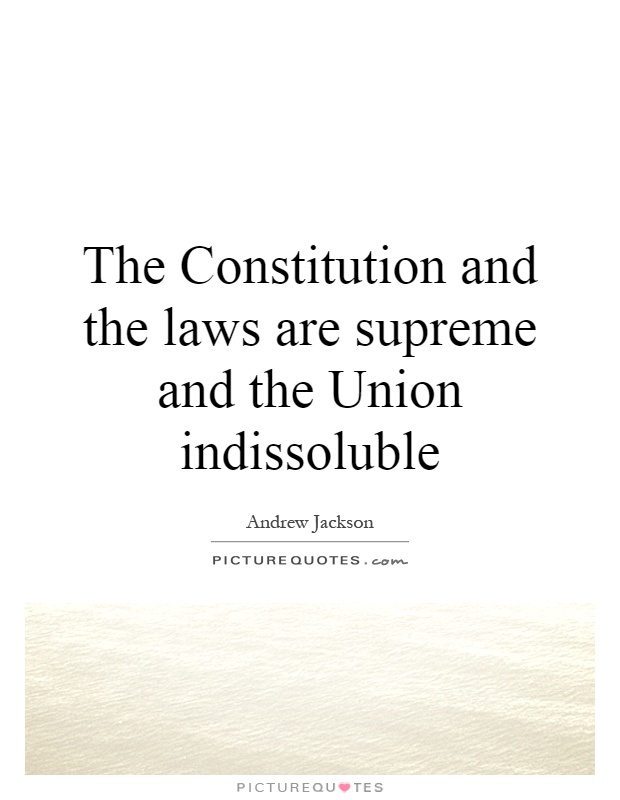The Constitution and the laws are supreme and the Union indissoluble

The Constitution and the laws are supreme and the Union indissoluble
Andrew Jackson, the seventh President of the United States, was a strong advocate for the supremacy of the Constitution and the indissolubility of the Union. Throughout his presidency, Jackson fiercely defended the principles enshrined in the Constitution and worked to preserve the unity of the nation.One of the key moments in Jackson's presidency that exemplified his commitment to the Constitution and the Union was the Nullification Crisis of 1832. South Carolina had passed an ordinance declaring the federal tariffs of 1828 and 1832 null and void within the state, asserting the right of a state to nullify federal laws it deemed unconstitutional. Jackson, a staunch defender of federal authority, viewed nullification as a direct challenge to the supremacy of the Constitution and the Union. In response, he issued a Proclamation to the People of South Carolina, firmly asserting that the Constitution and the laws of the United States were supreme and that the Union was indissoluble. Jackson made it clear that he would use force, if necessary, to uphold federal authority and preserve the Union.
Jackson's unwavering stance during the Nullification Crisis demonstrated his belief in the importance of maintaining a strong federal government and a united nation. He believed that the Constitution provided the framework for a stable and prosperous society and that the Union was essential for the preservation of liberty and democracy. Jackson's actions during the crisis helped to avert a potential secession crisis and reinforced the principle that the federal government had the ultimate authority to enforce the laws of the land.












 Friendship Quotes
Friendship Quotes Love Quotes
Love Quotes Life Quotes
Life Quotes Funny Quotes
Funny Quotes Motivational Quotes
Motivational Quotes Inspirational Quotes
Inspirational Quotes